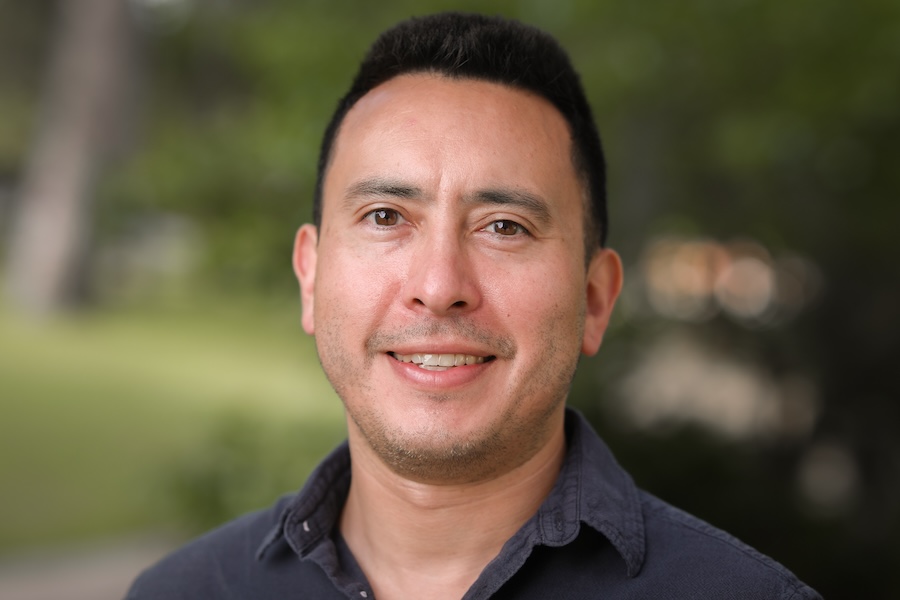Faculty Spotlight: Matthew Mewhinney

Matthew Mewhinney is an associate professor of Japanese, the Japanese Program coordinator, and the undergraduate advisor for Japanese in the Department of Modern Languages and Linguistics, part of Florida State University’s College of Arts and Sciences. He earned his doctoral degree in Japanese language from the University of California, Berkeley in 2018 and served as a visiting assistant professor at Boston University before joining FSU’s faculty in 2019. His first book, "Form and Feeling in Japanese Literati Culture," was published by Palgrave Macmillan in 2022 and explores the work of four Japanese poets. During this year’s annual FSU Faculty Awards Celebration, Mewhinney received a 2023-2024 Outstanding Teaching in the Major award.
What inspired you to pursue language studies?
I took Japanese in high school, which sparked my interest in Japanese literature and culture. Japanese was not my first pick, but as I started to study it, I fell in love with the language. This led me to major in Japanese in college. In addition, I had always been interested in Chinese, so I chose to double major in Chinese as well.
Can you break down your areas of academic interest?
My research interests are Japanese literature and culture. The themes that guide the questions in my work are romanticism, lyric poetry, narrative, imagination, subjectivity and translation. I also teach courses on Japanese film.
My first book, “Form and Feeling in Japanese Literati Culture,” examines the concept of "bunjin," which means literati in Japanese. Bunjin were scholars who practiced poetry, painting and calligraphy. I examine how this Chinese tradition evolved in Japan, peaked in the 18th to 19th centuries, and declined with modernization in the late 19th to early 20th centuries.
My research and this book explore the representation of self, sense and feeling in poetic writing. I aim to shed light on the intricate ways literature captures the human experience while enriching our understanding of the artistic and cultural history it embodies.
How has writing your first book impacted you?
My book, based on my dissertation, has been transformed into a publication aimed at a wider audience. I hope to author more books because it allows me to explore problem-solving approaches and connect with scholars in Japanese literature and beyond. I’m a big fan of academic monographs and books because they provide me with a platform to delve into complex ideas, contribute to broader conversations, and establish myself within the academic community. It also allows me to articulate perspectives in a way that articles often cannot.
What does receiving an FSU 2023-2024 Outstanding Teaching in the Major award mean to you?
Being recognized for something I deeply care about is very rewarding. I love teaching literature and language, and I'm grateful that there are people who care about what I do and my teaching approach. Our program has a lot to offer, and I believe winning this award will draw more attention to the Japanese Program.
Tell us about your teaching style.
I strive to create a dynamic classroom where students engage with stimulating questions that challenge them to think critically and imaginatively. My goal is to foster an environment promoting intellectual growth and openness to new ideas.
What is your favorite part about your job?
My favorite part of my job is teaching. Being in the classroom with students is incredibly fulfilling. The semester ending is always bittersweet for me because I enjoy the dynamic interaction and intellectual stimulation that comes with teaching. It's not just about imparting knowledge; it's about how students challenge my perspectives and push me to reconsider my understanding of the material. They keep me on my toes and motivated throughout the academic year.
Who are your role models?
Initially, my undergraduate professors and high school English teacher sparked my interest in Japanese literature. Now that I’m older, I look up to the colleagues in my field for their accomplishments. Yet, the early influences and mentors of my youth remain crucial to my growth. I also draw inspiration from literary figures such as Ted Kooser, whose poetry captivates me, and from artists who challenge conventional thinking.
What academic impact do you hope your work will have?
I aim to reach readers interested in literature. Novels and poetry can evoke profound emotions and perspectives on life, and literature has the universal power to resonate across cultures, demonstrating how the work of artists can deeply shape our self-perception and understanding of the world. When I publish my work, I hope that colleagues in my field will grasp its significance and resonate with its ideas. I want to spark meaningful discussions and foster ongoing dialogue in Japanese literary and cultural studies.
Do you have any exciting upcoming projects?
My next project, tentatively titled "Sound and Sympathy in Japanese Literature," builds on themes from my previous work with a stronger focus on novels over poetry. It aims to investigate why readers are drawn to novels and how they become deeply engaged with the narrative rhythm, emotionally immersing themselves as they read. I'm intrigued by how readers connect with characters and their situations, experiencing empathy and emotional resonance not through visuals but through the auditory and emotional dimensions of storytelling. This project examines how the language's rhythm through narration contributes to this immersive experience.
If your students could only take away one key lesson from you, what would you want it to be?
If my students only learned one thing from me, I would hope it's the importance of our imagination. Art and literature open endless possibilities for interpretation and thought, allowing us to explore what the human mind can create and encouraging us to consider new perspectives. By engaging with art and literature, we nurture our imagination and enhance our ability to envision what is possible.

